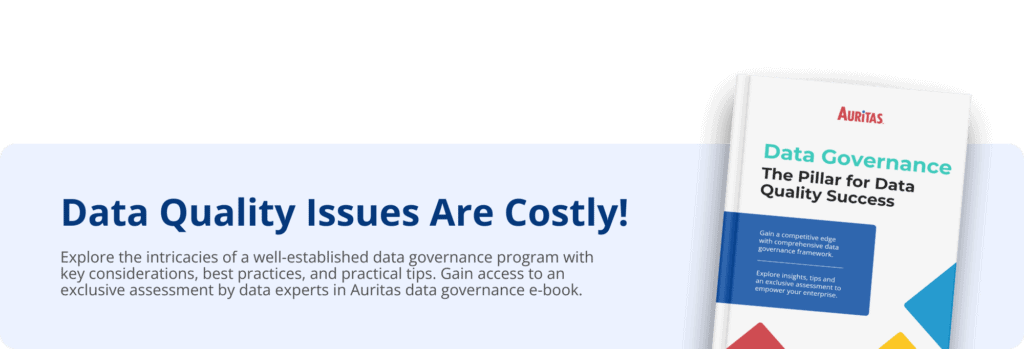The Sarbanes-Oxley Act of 2002 (SOX) has played a pivotal role in shaping corporate governance and financial reporting practices in the United States. Simultaneously, the increasing reliance on data in modern business operations has underscored the importance of effective data governance. Understanding the importance of an effective governance framework for SOX compliance is essential to ensure companies are following the relations’ requirements.
SOX was enacted in response to corporate accounting scandals that shook investor confidence in the early 2000s. The legislation aims to enhance transparency, accountability, and integrity in financial reporting, primarily for publicly traded companies. Key provisions include the establishment of the Public Company Accounting Oversight Board (PCAOB), certification requirements for CEOs and CFOs, and stringent rules on internal controls and financial disclosure.

The Role of Data in SOX Compliance:
Data is at the heart of financial reporting, making it a critical component in achieving and maintaining SOX compliance. Accurate and reliable financial statements depend on the quality, integrity, and confidentiality of data.
As such, organizations subject to SOX regulations must implement data controls to ensure the completeness and accuracy of financial information. Data governance becomes instrumental in this context, providing a structured approach to managing data throughout its lifecycle.
As data governance involves establishing policies, procedures, and controls for effective data management, it also ensures compliance with relevant regulations, including SOX. A well-implemented governance framework aligns with several key SOX Compliance requirements. Let’s explore five of those:
- Data Accuracy and Integrity:
Data accuracy is paramount in the realm of financial reporting, and data governance serves as the bedrock for ensuring these critical attributes. By aligning with the SOX, emphasis on reliable financial reporting, data governance becomes a proactive mechanism to identify and rectify inaccuracies or inconsistencies in financial data. This not only enhances the precision of financial statements but also instills confidence in stakeholders regarding the authenticity and reliability of the information presented.
- Data Security and Confidentiality:
Safeguarding sensitive financial information is a non-negotiable aspect of corporate responsibility, and SOX mandates precisely that. Data governance plays a pivotal role in fortifying data security and confidentiality by implementing a multifaceted approach. This includes defining and enforcing stringent access controls to ensure that only authorized personnel have access to sensitive financial data.
- Documentation and Accountability:
Both SOX and data governance share a common emphasis on meticulous documentation and accountability, creating a robust foundation for transparent and responsible data management. Data governance, in this context, goes beyond the establishment of data quality standards and extends to defining clear roles and responsibilities for data stewardship.

By institutionalizing documentation practices and holding individuals accountable for their roles in the data governance framework, organizations not only fulfill SOX compliance requirements but also foster a culture of responsibility and transparency that permeates throughout the financial reporting processes.
- Audit Trails and Monitoring:
The core tenet of SOX Compliance is the rigorous monitoring and auditing of financial processes to ensure accuracy, transparency, and adherence to regulatory standards. Data governance becomes a key enabler in this regard by facilitating the establishment of comprehensive audit trails for data changes. These audit trails serve as a historical record, documenting every modification, access, or alteration made to financial data.
- Risk Management:
The proactive identification and mitigation of risks are integral components of both data governance and SOX Compliance. Data governance, as a strategic framework, contributes significantly to risk management by systematically identifying, assessing, and addressing data-related risks that could potentially impact financial reporting. This involves conducting thorough risk assessments, identifying vulnerabilities in data processes, and implementing measures to mitigate these risks.
The integration of SOX Compliance and Data Governance is essential for organizations aiming to instill trust in their financial reporting processes. By recognizing the symbiotic relationship between these two domains, businesses can build a resilient framework that not only ensures regulatory compliance but also promotes the effective and ethical management of data, thereby safeguarding the integrity of financial information and fostering sustainable growth.
Learn how LivaNova was able to improve accuracy in business transactions, enhance sales planning, and streamline master data maintenance by implementing Data Governance solutions with Auritas.

